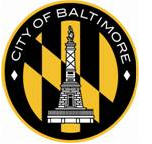Mayor Names Heroin Treatment and Prevention Task Force
Wednesday Oct 15th, 2014

FOR IMMEDIATE RELEASE
Mayor Rawlings-Blake Names Task Force to Study Heroin, Substance Use in Baltimore City
Working groups will develop strategies for stronger community engagement in neighborhoods where treatment programs operate, improve access to treatment
BALTIMORE, Md. (October 15, 2014)—Today, Mayor Rawlings-Blake announced the appointment of the Heroin Treatment and Prevention Task Force, designed to examine the extent of the Baltimore's heroin and substance use problems, as well as identify ways to improve outpatient treatment. The task force will also explore ways to improve community engagement and promote positive interactions in neighborhoods where treatment programs operate.
According to a report of death certificate data from 28 states just published by the Centers for Disease Control and Prevention in a recent issue of the Morbidity and Mortality Weekly Report, heroin deaths increased sharply in many states. For the past seven years, heroin has been associated with more overdose deaths than any other substance and remains a major contributor to substance use disorders in Baltimore City.
"Like many communities throughout the country, Baltimore City is comprised of a diverse mix of residents—some of whom need access to affordable treatment and support because they experience substance use disorders," said Mayor Rawlings-Blake. "They are our friends, neighbors, and relatives—and we, as a community, should do more to assist them in their efforts to recover. This task force will help us fully understand the scope of the problem and develop a strategy for improving how we respond to certain addictions."
The task force includes representatives from Behavioral Health System Baltimore (BHSB) and the Office of the Mayor, as well as substance use and behavioral health experts, law enforcement officials, and faith and community leaders. BHSB, which serves as Baltimore City's lead agency on substance use prevention and treatment and helps residents overcome addiction and rebuild their lives, will be administer the task force.
Through specialized working groups, the task force will assess the unmet need for treatment in the City in an effort to provide a more robust structure for supporting those in recovery by increasing the availability and quality of outpatient services. The task force will also explore how to better engage the community and promote positive interactions in the neighborhoods where these treatment programs operate.
"Substance use is more than just a public health issue—it's a community-wide concern that demands a response from the entire Baltimore community," said Bernard McBride, president and CEO of BHSB, who will serve as co-chair of the task force. "This task force is an important element of the City's long-term strategy to improve the availability, quality, and effectiveness of outpatient services for individuals with substance use disorders."
The task force's four working groups will focus on neighborhood engagement, practice standards, data collection, and access to care.
The Heroin Treatment and Prevention Task Force will report back to City officials by July 2015 with recommendations for strengthening treatment, improving access to treatment, and reducing substance use.
Heroin Treatment and Prevention Task Force Members
- Samuel Ross (Chair), CEO, Bon Secours
- Bernard J. McBride, President & CEO, Behavioral Health System Baltimore
- Kenneth Abrams, Special Agent, Drug Enforcement Administration
- Michael T. Abrams, MPH, Senior Research Analyst, The Hilltop Institute, University of Maryland Baltimore City
- Robert K. Brooner, MD, Director, Addiction Treatment Services and Professor Department of Psychiatry and Behavioral Health, Johns Hopkins University
- Aruna Chandran, MD, Chief of Epidemiologic Services, Baltimore City Health Department
- Robert Curran, City Council, Councilman 3rd District
- Vu T. Dang, Assistant Deputy Mayor for Health, Human Services, Education, and Youth, Office of the Mayor
- Franklin Dyson, Treatment Compliance Evaluator, DHMH, Behavioral Health Administration
- Jan Gryczynski, PhD, Research Scientist, Friends Research Institute
- Lisa Hadley, MD, JD, Clinical Director, DHMH, Behavioral Health Administration
- Zereana Jess-Huff LPC, LMFT, CCM, PhD, Chief Executive Officer, ValueOptions Maryland
- Kimberly A. Johnson, Consultant
- Jacquelyn Jones, Hampden Merchant
- Traci Kodeck, MPH, Vice President, Programs, HealthCare Access Maryland
- Lieutenant Colonel Keith D. Matthews, Neighborhood Patrol Division, Baltimore Police Department, Eastern District
- Scott Nolen, Director, Drug Addiction Treatment, Open Society Institute-Baltimore
- Amanda Owens, Program Officer, Criminal Justice and Addictions, The Abell Foundation
- Daryl C. Plevy, JD, Deputy Director, Operations, Behavioral Health Administration
- Timothy Santoni, MA, Administrator for Data Management, Systems Evaluation Center, University of Maryland School of Medicine
- Robert P. Schwartz, MD, Medical Director/Senior Research Scientist, Friends Research Institute
- Judy Simmons, Alumni, The Family Recovery Program, Inc.
- Reginald Thomas, Sr. D.Min., Pastor, Greater Gethsemane Missionary Baptist Church
- Michelle Tuten, PhD, Assistant Professor, University of Maryland School of Social Work
- Jay Unick, MSW, PhD, Assistant Professor, University of Maryland School of Social Work
- Vickie L. Walters, LCSW-C, Executive Director, Institutes for Behavior Resources, Inc.
- Kathleen Westcoat, MPH, President/CEO, HealthCare Access Maryland
- Michelle Wirzberger, Esq., Executive Director, Midtown Community Benefits District
- Christina Trenton, Vice President, Program Operations, Behavioral Health System Baltimore
- Mishka Terplan, MD, MPH, FACOG Diplomate ABAM, Medical Director, Behavioral Health System Baltimore
- Ryan Smith, Director, Recovery Support Services, Behavioral Health System Baltimore
- Jose Arbelaez, MD, MHS, PhD, Director, Epidemiology and Evaluation, Behavioral Health System Baltimore